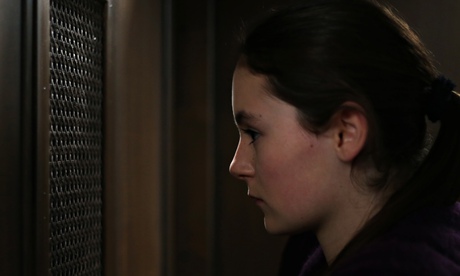
With distinctive severity and clarity, this brilliant, cold movie from German director Dietrich Brüggemann is about a teenager from a conservative Catholic family who becomes convinced of her sacrificial destiny. The inexpressibly painful story of Maria (Lea van Acken) is structured in an ingenious parallel with the stations of the cross (that is, the traditional scenes associated with Christ carrying his cross to the crucifixion) and filmed in mostly static tableaux, beginning with a confirmation class whose composition recalls depictions of the last supper. This sequence closes with an ill-judged throwaway remark from the young priest (Michael Kamp), which Brüggemann subtly shows may have triggered Maria’s nightmarish anorexia. Franziska Weisz plays Maria’s implacably fierce mother, whose heavy-handed intrusiveness makes things worse. It is all intensely controlled, although this is a drama that goes by the book, in all senses; there are no unabsorbed events to disorder the parable’s secular/religious alignment, and the Greeneian miracle it eventually conjures is arguably a little too pat. Yet it is also strangely moving, because of the relentlessness of the narrative progression, underscored by its biblical intertitles; the episodes paradoxically generate a kind of suspense. It is interesting to contrast it with Katell Quillévéré’s Love Like Poison, a much warmer, more wayward film on a similar topic. Bergman’s Winter Light is probably a closer comparison.

